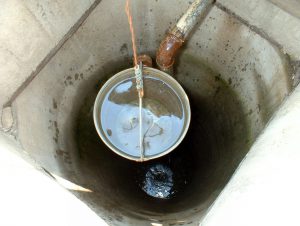 With so many options on the market, it can be a little daunting to choose a water treatment system for your well. Unfortunately, choosing the wrong system can have a detrimental impact on your water quality and the overall performance of the system. So, before you choose a new treatment system, there are some common mistakes you should be aware of.
With so many options on the market, it can be a little daunting to choose a water treatment system for your well. Unfortunately, choosing the wrong system can have a detrimental impact on your water quality and the overall performance of the system. So, before you choose a new treatment system, there are some common mistakes you should be aware of.
Failing to Correctly Analyze Well Water Chemistry:
Almost every water treatment system has certain conditions or ranges in which they can deliver optimum performance. For example, if you have naturally acidic water with iron present, you will need a system that can not only eliminate the iron, but counteract the acidity.
It is crucial that you know which analysis parameters are important. Your well may be exposed to chemical substances simply because of your geographic location. If you live near an industrial site or gasoline station, or even if you’re close to an agricultural area, your well may be vulnerable to different types of contamination.
Therefore, it is important to not only perform a good water analysis, but be able to interpret the results to choose an appropriate system.
Not Understanding How the Pumping Systems Work:
Most types of well pump water automatically using a submersible pump. With shallow wells, a jet pump on the top of the ground level may be used to draw water from the well and create household water pressure.
Some systems have a large holding tank which holds the water from the well before it is pumped to the home, but others are gravity fed, using gravity to create water pressure for the property.
If you don’t understand the basics of how the well water system would perform, it is difficult to choose an appropriate option. Choosing a style of treatment method may adversely impact the water pressure and flow rate.
Not Considering the Well Pump Flow Rate:
There are different sizes of both wells and well pumps. Each model of pump will pump water at a different rate and this will determine the flow rate. It is important to know the flow rate, so you can pair it with an appropriate water treatment system.
Almost all well water filtration systems have a self cleaning feature, but they need a specific minimum flow rate to operate. For example, if you have a water treatment system that requires ten gallons, but your existing pump only produces seven gallons per minute, the system will be unable to properly backwash and after a few weeks, it will become fouled. In this scenario, the media in the water filter may seize and it will render the entire system inoperable.
Unfortunately, you cannot simply go for the largest size. Although an undersized system could push media into the plumbing, an oversized system would cause a loss of pressure.
If you are struggling to choose a well water treatment system, you can rely on the expertise of a professional water treatment specialist. An experienced technician can calculate the appropriate size of system you need and guide you through the available options.
